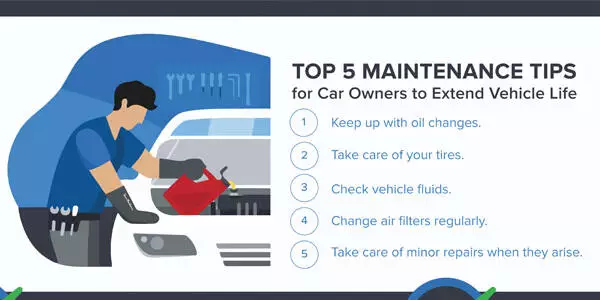
Warning: Are You Ignoring the Signs of a Failing Battery?
Have you ever turned your ignition key only to be met with sputtering or a slow motor crank? Recognizing signs of a failing battery can save you from unexpected breakdowns and costly repairs. You might notice common symptoms like flickering headlights or a drained battery that refuses to charge properly. Electrical issues can creep up on you, causing your car to struggle with stalling or engine starting trouble. Picture this: you’re all set for a road trip, but your car battery decides it’s had enough. Frustrating, right?
Paying attention to car battery symptoms is crucial. You may spot battery failure indicators such as a bulging battery case or leaking battery acid. Loose connections or corrosion can also lead to battery lifespan issues. Maybe you’ve observed warning lights on your dashboard, or you’ve needed to jumpstart your car more than once. These telltale signs signal it’s time for a battery health check or even considering a battery replacement before you’re left high and dry.
Don’t let a bad battery catch you off guard. Dive into the details and learn how to keep your car running smoothly. You’ll discover how to tackle these issues head-on, ensuring your vehicle stays reliable and ready for the road. Stay informed, and take charge of your car’s health today!
In the article
Recognizing Signs of Failing Battery
Common Battery Failure Indicators
One of the first signs that you might be overlooking is when your battery doesn’t hold charge. If your car struggles to start or doesn’t start at all, the battery could be failing. Have you noticed your car taking longer to crank? This could be a sign of a battery problem that shouldn’t be ignored. Another car starting issue could be the battery not holding a charge, especially if your vehicle sits idle for a few days and fails to start afterward.
Detecting Battery Issues Early
Do you ever find your headlights dimming when you’re idling or driving slowly? This is a battery warning sign that might indicate a weak battery. It’s one of the first signs that the battery is not delivering enough power. Listen closely when you turn the ignition key. If you hear clicking sounds, this is a telltale sign of battery trouble. Clicking sounds usually mean there’s not enough power reaching the starter motor. Don’t forget to check your dashboard for warning lights. A battery icon lighting up can mean your battery isn’t charging properly.
Battery Replacement Signs to Note
How old is your battery? If it’s older than 3 years, it might be time for a change. Batteries wear out over time, and an older battery can cause engine starting trouble. Have you checked the battery terminals? Corrosion on terminals is a major red flag. Corrosion looks like a white, ashy substance and can prevent your battery from functioning correctly. Frequent jump-starts are another battery replacement sign. If you need a jump-start more often, your battery might not be holding a charge efficiently.
Understanding Car Battery Symptoms
Electrical system problems are tricky. If you notice flickering lights or power windows that operate slower than usual, you might be facing battery issues. Is your car taking longer to start, even when the weather is warm? Engine starting trouble could point to a weak battery. Regular battery health checks are important. They help catch issues before they become serious problems. By regularly checking your battery, you ensure it stays in good condition, thus avoiding surprising breakdowns.
Essential Tips to Prolong Battery Life
Follow these steps to extend the lifespan of your car battery:
- Ensure tight cable connections to prevent power loss.
- Park in cool, shaded spots to avoid overheating.
- Limit short drives; longer trips keep the battery charged.
- Switch off accessories (like lights and radio) when parked.
- Schedule regular battery maintenance checks.
These actions can prevent a number of battery issues. Keeping a close watch on battery health can help you avoid emergencies. Making these adjustments in your routine can really make a difference in how long your battery lasts.
Maintain Your Battery Health
It’s important that you don’t ignore automotive battery problems. Simple actions can maintain your battery health and prevent future issues. Implementing these tips in your daily life helps ensure that you don’t get caught off guard by a dead battery.
When to Seek Professional Help
Knowing when to see an expert is crucial. Recognizing persistent signs of battery problems will help you make the right call. In some cases, professional help is necessary to properly diagnose and fix the issue.
Recognizing Persistent Signs
If consistent starting issues occur, you might need professional help. A car that struggles repeatedly to start signals that there’s more happening under the hood. An expert diagnosis can ensure the right solution is applied, avoiding further damage or the need for a costly repair.
Understanding Electrical System Problems
Complex electrical issues often require specialists. If you encounter flickering headlights, slow power windows, or a radio that cuts in and out, your battery might not be the only problem. Specialists have the tools and knowledge needed to tackle these Complex electrical issues efficiently.
Stay on Top of Your Battery Health
Understanding the early signs of battery trouble helps you prevent sudden breakdowns. You gain peace of mind knowing your car won’t leave you stranded. By knowing the common symptoms, like flickering headlights or slow motor crank, you can act swiftly and avoid costly repairs.
Start by performing a battery health check. Look for visible issues such as corrosion or a bulging case. If any warning lights appear, or you notice issues like slow cranking or electrical problems, consider visiting a professional for testing. This proactive step ensures your car runs smoothly.
Don’t wait until it’s too late. Check your battery regularly and take action when needed. Keeping your car’s battery in top shape means more reliable travels. Take charge of your car’s future today!







